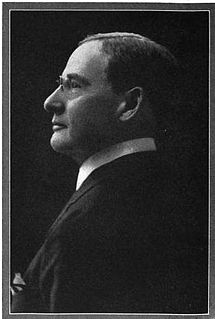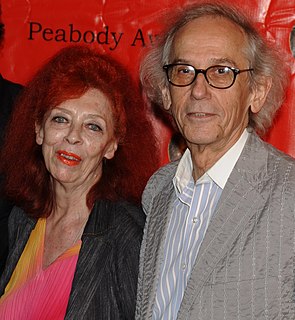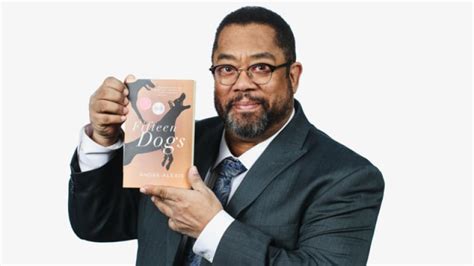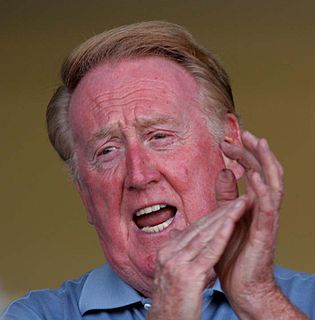A Quote by Nelson Algren
One of the best things Henry Miller ever said was that art goes all out. It's all out. It goes full length. . . . A big book is an all-out book in which you limit your life to things that pertain directly to the book.
Related Quotes
Somebody said, "Well, you're going to write your definitive book about your life, biography." No, I'm not. I haven't done that. I wrote a book of letters which gives an insight into the real me as opposed to the public perceptions of me. But I'm convinced historians will figure out the things we got wrong and hopefully the things we got right.
You will want a book which contains not man's thoughts, but God's - not a book that may amuse you, but a book that can save you - not even a book that can instruct you, but a book on which you can venture an eternity - not only a book which can give relief to your spirit, but redemption to your soul - a book which contains salvation, and conveys it to you, one which shall at once be the Saviour's book and the sinner's.
I doubt if I shall ever have time to read the book again -- there are too many new ones coming out all the time which I want to read. Yet an old book has something for me which no new book can ever have -- for at every reading the memories and atmosphere of other readings come back and I am reading old years as well as an old book.
The book it reminded me of most is Henry Miller’s The Books in My Life. Like Miller, Shields manages to convey his affection for and admiration of literature, and that, the enthusiasm and admiration, can revitalize the reader’s love for the art form. I’m grateful for How Literature Saved My Life because the book has made me think again – and for the first time in a while – 'Well, what is it we do when we read?' It’s a damned annoying question, but it needs to be asked now and then, and Shields has asked it in a way I find resonant and moving.
And also it's an ever-gathering process. If I pick up the Sporting News or some sports publication and there's an article on somebody and I think I might see that player, I will tear it out and put it in a file, and I have a looseleaf book so when we're going to play that particular team I take out all these clippings and things I pulled out, I go through them, highlight them, put them in the book.
I've written one book-length piece of journalism. The Art of Political Murder: Who Killed Bishop Gerardi? That book had an impact. Eight years after it was published it's still having an impact in Guatemala. I remember when I wrote it, a surprising number of people said things to me like, "That is such an amazing story; why didn't you turn it into a novel?"





































